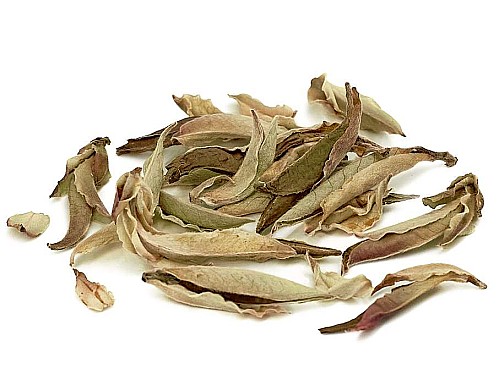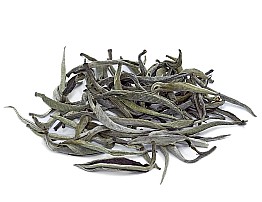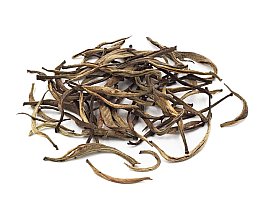2024 White Wild Tea Buds
Harvest: spring 2024
Elevation: 1250 m
Trees' age: 500+ yo.
Availability: Out Of Stock
Harvesting such tea is extremely challenging: the pickup truck stops at the edge of the forest, and the pickers must cut their way through high grass and shrubs with machetes, as the path quickly becomes overgrown in the tropics, blocking access to the next year's harvest. Tea from these trees is harvested once a year as it grows slowly, and nobody sends pickers for such a small amount of material due to the difficulty of the task. Climbing trees up to 15 meters high on wet trunks is no easy feat.
However, all these difficulties are worthwhile: the tea grows in completely natural conditions, within a rich biodiversity, which positively affects its taste and chemical composition. The infusion is powerful, rich, and beneficial for health. And just as important, the forest's ecology remains undisturbed, unlike in "cleared" tea gardens and plantations.
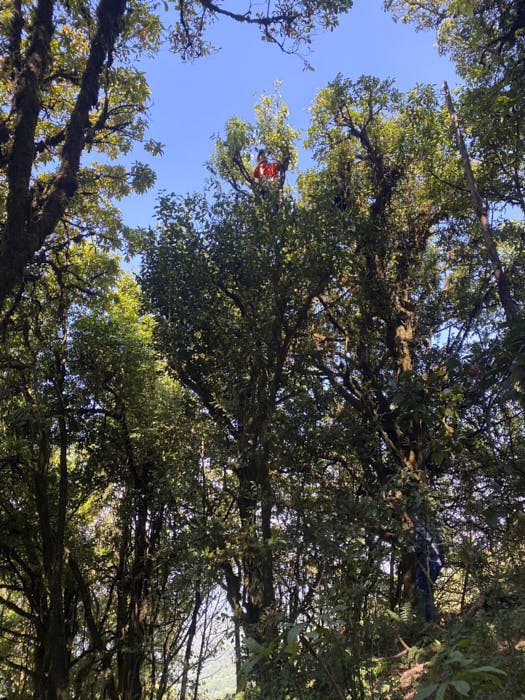
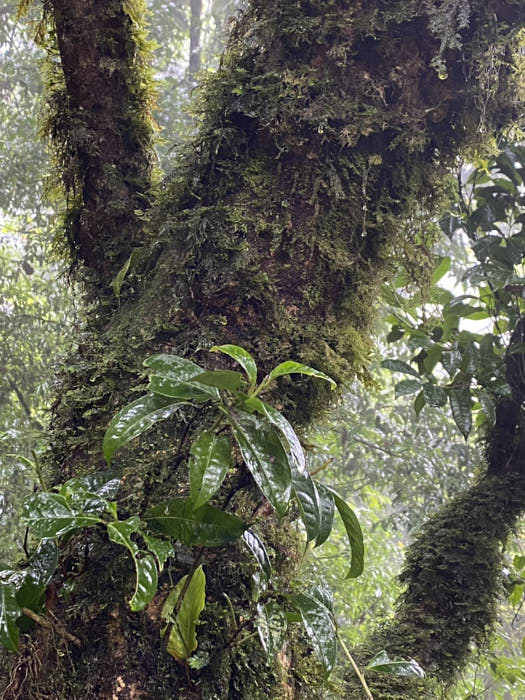
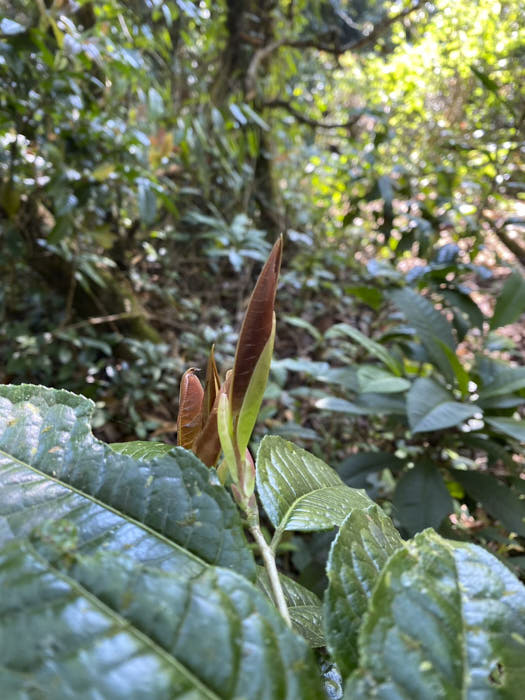
Organoleptic properties
The opened pack smells of St. John's wort, sour berries, and vanilla cream. Once rinsed, the tea adds sage, a bouquet of wildflowers, distinct currant, and a hint of a buttery bun.
Before brewing, it's best to cool the water to 85-90°C (185-195°F). No, this tea won’t turn bitter even if you pour boiling water over it. However, you might get notes of cooked apples, and the creamy vanilla tones could be lost. The buds are delicate and light, releasing their flavor easily; boiling water isn’t necessary—though for the final infusions, you can use higher temperatures.
The flavor features a combination of aromatic tart berries and various medicinal herbs, with sage standing out in particular. In the background, proficient ones would recognize a subtle sweet note of vanilla, which is most pronounced in the aroma of the infusion. In the taste, it moves to the background, peculiarly complementing the sage and St. John's wort with its delicate sweetness. Then, its trail takes up a good half of the aftertaste.
The tea is exquisite, rare, and drinks very easily and gently. It glides down the throat as smoothly and softly as wild buds from big jungle trees should.
The buds are very light and fluffy; don’t be deceived by their volume—make the first brew with your favorite, finest gaiwan measuring the tea with scales. Or, if not a gaiwan, take a shiboridashi, houhin, kyusu—anything that allows you to quickly and fully access the aroma. However, I would recommend brewing this tea in fine porcelain.
The effect of this tea is gentle and light, fitting the flavor. There is no caffeine here, you will feel only relaxation and tranquility.
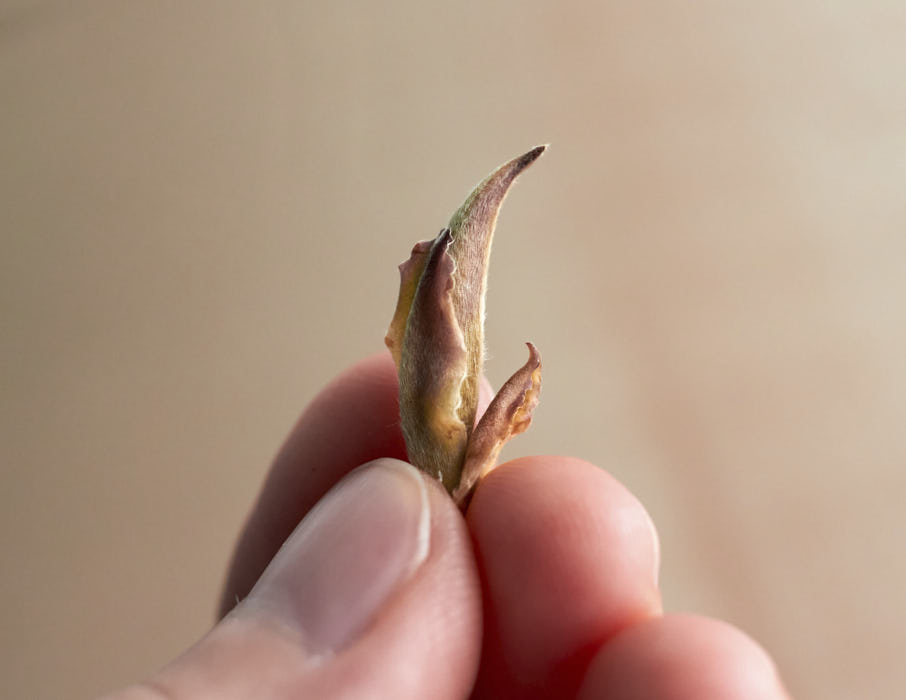
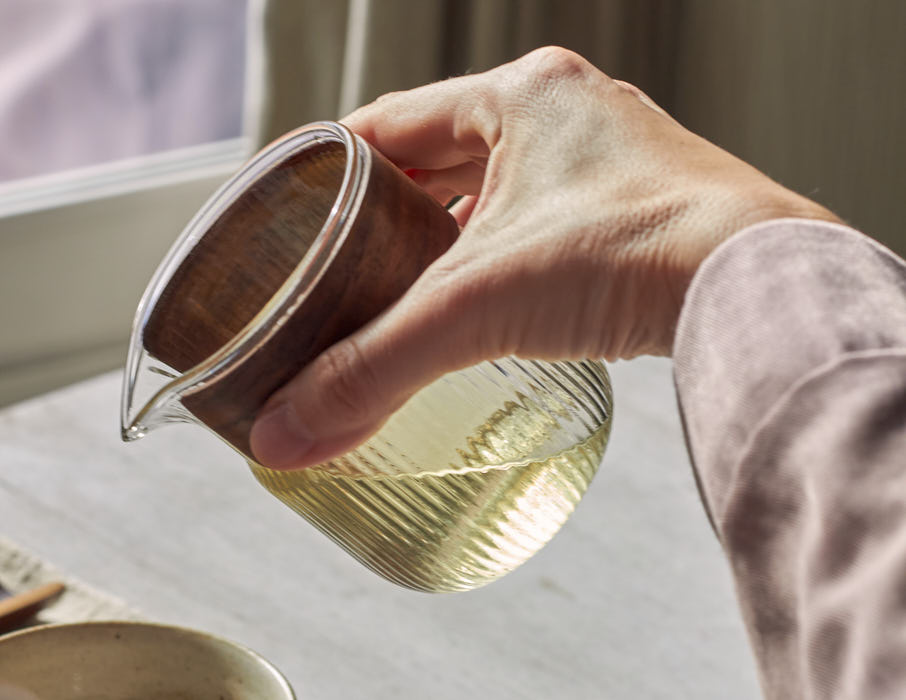
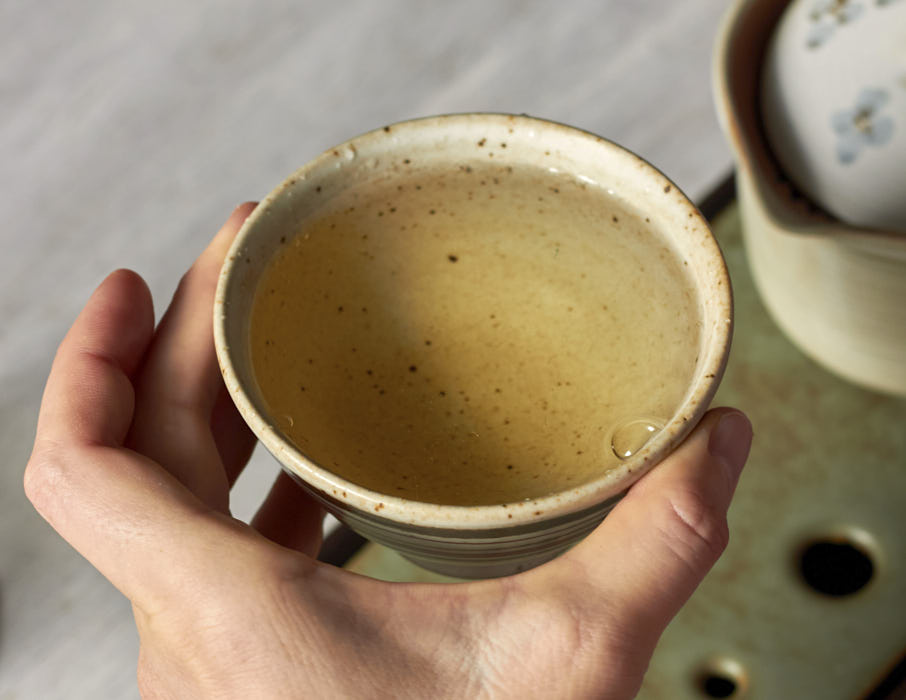
As a final treat, here is a video about how we made our way through the Thai jungle in search of wild tea trees in 2010.
Reviews (1)
This tea is really something special. Wildly sweet, the first few infusions taste like pure honeysuckle. An incredible tea. And very low caffeine. I’m quite sensitive to caffeine and was able to have a late night session with this tea and go straight to bed.


